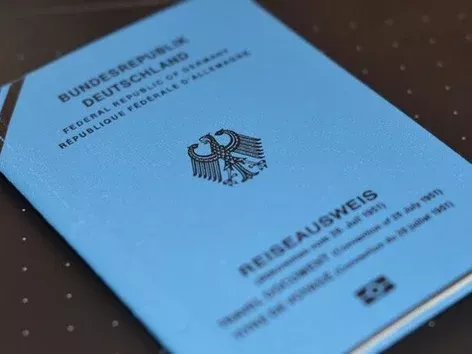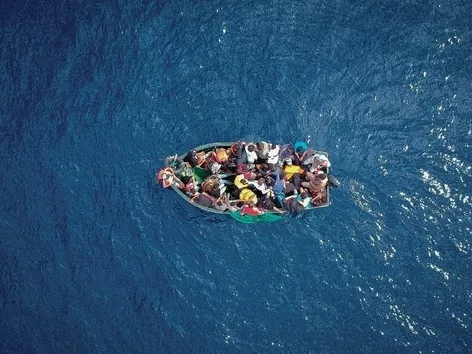What will happen to Ukrainians in Germany after the war: how can Ukrainians legalize themselves in Germany after the end of temporary protection?
Table of contents

After the outbreak of hostilities in Ukraine in February 2022, the German government granted temporary protection status to hundreds of thousands of Ukrainian citizens. Having lived for a long time in this developed country, a certain percentage of Ukrainians expressed a desire to remain in Germany. Learn more about the ways and opportunities for Ukrainians to remain in Germany if the temporary protection status is revoked or the war ends
Since 2022, Ukrainians fleeing the war have been granted temporary protection in Germany in accordance with the EU Directive on Temporary Protection. This status allows them to live in the country, work, study, receive social benefits and medical care. However, this regime is temporary and may end as early as 2025. In order to stay in Germany legally, it is necessary to prepare in advance for the transition to other types of legal stay.
Legalization options for Ukrainians in Germany
- Obtaining a residence permit for work
To obtain the right to work in Germany, a Ukrainian must complete the following steps:
1. Find a job in Germany and sign an employment contract.
2. Prove that your qualifications meet the requirements of the vacancy. This often requires confirmation of diplomas or professional skills.
3. Apply for a residence permit for employment (Aufenthaltstitel zur Beschäftigung).
Advantages: the opportunity to work and receive social guarantees.
Disadvantages: the need to find a stable job with a sufficient salary.
- Studying in Germany
If you plan to pursue higher or vocational education, you can apply for a study visa. To do this, you need to:
1. Enroll in a German university, college or vocational school.
2. Have enough funds for living expenses (at least 11,208 euros per year, which must be deposited in a blocked account).
Advantages: the opportunity to get a European education and stay in Germany after graduation.
Disadvantages: financial costs and the need to meet educational requirements.
- Entrepreneurship
If you have a business idea and the financial resources to implement it, you can get a residence permit to run a business. To do this:
1. Draw up a business plan.
2. Prove that your activity will contribute to the German economy.
3. Confirm the availability of capital or investors.
Advantages: the opportunity to develop your own business in a stable economy.
Disadvantages: high risks and the need for start-up capital.
- Family immigration
If your spouse, children or parents are German citizens or have a permanent residence permit, you can apply for family reunification, requirements:
1. Prove family ties.
2. Confirm the financial stability of the family.
- EU Blue Card
This is a residence permit for highly qualified workers. Basic requirements:
1. Possession of a higher education diploma recognized in Germany.
2. Employment contract with a salary of at least 58,400 euros per year (or 45,552 euros for specialists in the field of IT, medicine, etc.).
Advantages: quick access to permanent residence.
Disadvantages: only suitable for a narrow circle of specialists.
To move, travel or work safely in a new country, you will need health insurance. You can apply for an extended policy on our website here.
What do Ukrainians in Germany need to do now?
1. Assess your capabilities. Determine which legalization option suits you best.
2. Learn German. Language skills are mandatory for almost all types of legalization.
3. Confirm your education and qualifications. Find out if your diploma needs to be nostrified.
4. Collect documents. Make sure you have a valid passport, birth certificates, marriage certificates, etc.
5. Consult with lawyers or migration advisors. Specialists will help you avoid mistakes when processing documents.
Will the temporary protection status be extended after the end of the war?
Temporary protection status (Aufenthaltstitel) for citizens of Ukraine in Germany is not an individual refugee status, but is a special permitted form of residence created by EU countries specifically for Ukrainians who are in Germany due to the war. This status gives Ukrainian citizens the right to social support, employment, education, as well as opening their own business and receiving a state scholarship.
However, it is important to consider that if the stay of Ukrainians in Ukraine becomes safe, they will have to leave Germany and return to Ukraine.
After the end of temporary protection, legalization in Germany is possible, but requires preparation. Choose the appropriate path, submit documents on time and do not forget about integration into society. Planning and actions today will help you avoid problems in the future.
We remind you! After arriving in Germany, refugees from Ukraine must apply for temporary protection. This process is regulated by § 24 of the Law on the Legal Status of Foreigners in Germany. It is on the basis of this paragraph that refugees receive a temporary residence permit "Aufenthaltstitel". We have already told you how to obtain a temporary residence permit in Germany and its cost.
Ihor Usyk - head of Visit World's legal department
When working abroad, expats often have various legal issues, because the legislation of each country is special. Consulting a specialist will help you understand all the intricacies of labor law. A labor and business lawyer is your reliable assistant in solving simple and complex issues in any corner of the world.
Products from Visit World for a comfortable trip:
Checklist for obtaining a visa and necessary documents in Germany;
Legal advice on business issues in Germany;
Travel insurance for foreigners in Germany;
Medical insurance around the world.
We monitor the accuracy and relevance of our information, so if you notice any errors or inconsistencies, please contact our hotline.
Recommended articles
2 min
Work
Work in Germany in 2025: work visa, vacancies and changes in migration legislation
In 2025, Germany introduced visa reforms to attract talent from around the world, as the country faces a severe labor shortage. In particular, during this year the country planned to issue 400,000 work visas. Find out what changes to migration legislation await foreigners in Germany in 2025, which positions are better for expats to get a job and the current procedure for obtaining a work visa
10 lut. 2025
More details3 min
Residence permit
Paragraph 25: obtaining permanent residence for refugees in Germany 2024
In order to stay in Germany, refugees can apply for asylum. To do so, they must go through the appropriate procedure and receive an official notification from the Aufenthaltsgestattung. Find out more about who is eligible for permanent residence for refugees in Germany under Paragraph 25 in 2024
21 kwi. 2024
More details2 min
For refugees
Refugee crisis: which countries in the world accept the largest number of refugees?
Over the past decade, the number of refugees in the world has more than doubled. In 2022, it generally exceeded the figure of 30 million. Find out which countries of the world received the largest number of forced migrants
09 lis. 2024
More details1 min
For refugees
In recent months, Canada's migration policy has undergone many changes and innovations. In particular, the country recently announced that it will suspend accepting private applications for refugee sponsorship until 2026. Read more about the reason for this decision
04 gru. 2024
More detailsAll materials and articles are owned by VisitWorld.Today and are protected by international intellectual property regulations. When using materials, approval from VisitWorld.Today is required.
